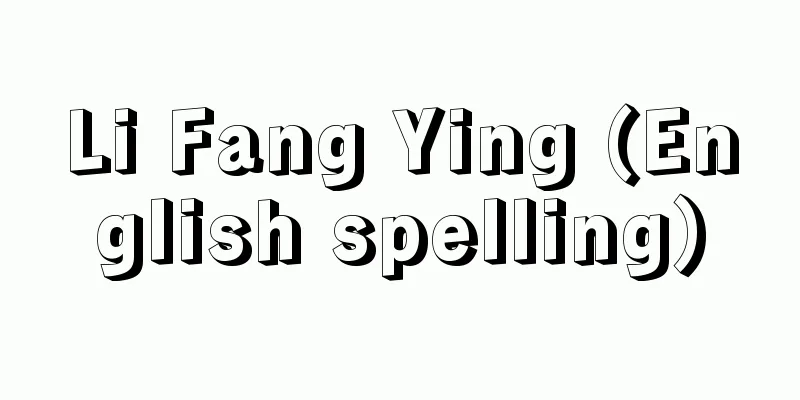Democratic Party

|
The New Frontier Party, which was formed as a force to oppose the LDP, was dissolved in December 1997. Following this, most of the New Frontier Party members merged with the old Democratic Party, which had been formed in September 1996, to form the New Democratic Party on April 27, 1998. Kan Naoto became the leader, and Hata Tsutomu became the Secretary-General. In the July 1998 House of Councillors election, 27 members were elected, solidifying the party's position as the largest opposition party. However, there was criticism of Kan's management of the party, and in the September 1999 leadership election, Hatoyama Yukio was elected leader, defeating Kan and Yokomichi Takahiro. In the June 2000 general election, the Democratic Party made a big leap from 95 seats to 127 seats. In the September leadership election of the same year, Hatoyama was re-elected without a vote. In the 2001 House of Councillors election, the party secured 26 seats, exceeding the 22 seats up for re-election, but the results were far from the goal advocated by Hatoyama and others of "defeating the LDP and bringing about a change of government." In the leadership election in the fall of 2002, Hatoyama defeated Kan, Yokoji, and Yoshihiko Noda to continue in his position. At the end of 2002, Hatoyama suddenly proposed a plan to merge with the Liberal Party. This was an attempt to restore the party's centripetal force, but it drew criticism from within the party. Hatoyama was forced to resign, and in a vote by members of the Diet, Kan was elected as the new leader with 104 votes, beating Okada Katsuya who received 79 votes. Kan appointed Okada as Secretary-General, and the Kan-Okada Executive Committee was launched. Kumagai Hiroshi and others who opposed Kan left the party and formed the New Conservative Party with the Conservative Party. In July 2003, Kan agreed to merge with Liberal Party leader Ozawa Ichiro, and after coordinating candidates for the general election and formulating policies, the new Democratic Party was launched in September by absorbing the Liberal Party. In the general election of 2003, the Democratic Party expanded its influence from 137 seats to 177 seats, partly due to the merger of the Democratic Party and Liberal Party. Suga also hoped to win the 2004 House of Councillors election to give impetus to a change of government, but just before the election, it was discovered that he had not enrolled in the National Pension System, forcing him to resign as party leader. Suga's successor, acting party leader Ichiro Ozawa, was chosen unopposed, but when it was discovered that Ozawa had also not enrolled in the National Pension System, he declined the position. In the end, the general assembly of both houses of parliament approved Okada's promotion from Secretary-General to party leader, creating confusion just before the House of Councillors election. However, in the House of Councillors election, Okada was able to demonstrate his characteristic seriousness. While the Koizumi LDP was criticized by voters for the pension issue and the issue of the Self-Defense Forces' participation in the multinational forces in Iraq, the Democratic Party had a tailwind, and in the House of Councillors election, the Democratic Party won 50 seats, surpassing the LDP's 49 seats. Okada was re-elected as party leader in September. The general election in September 2005 saw the LDP split over the privatization of postal services, giving the Democratic Party a chance to take power, but the party struggled under Prime Minister Koizumi's postal service-only offensive. With its seats plummeting from 177 to 113, Okada resigned as party leader. The election for the next leader was contested between 43-year-old Maehara Seiji and 58-year-old Kan Naoto, and Maehara won with 96 votes to Kan's 94 in a vote by members of both houses of the Diet. Maehara appointed Yukio Hatoyama as Secretary-General, Takeaki Matsumoto as Policy Research Council Chairman, and Yoshihiko Noda as Diet Affairs Committee Chairman. In February 2006, Democratic Party member of the House of Representatives Hisayasu Nagata questioned in the Diet about the fact that 30 million yen had been provided to people around LDP Secretary-General Takebe Tsutomu by Livedoor CEO Horie Takafumi, who had been arrested for violating the Securities and Exchange Act. However, the emails used to support the question turned out to be fake, and the Democratic Party came under fire. Nagata resigned from his seat in the Diet, and Chairman Maehara and Chairman Noda of the National Diet Affairs Committee also resigned. Ozawa and Kan competed in the leadership election in April, with Ozawa receiving 119 votes, overwhelming Kan's 72. Ozawa appointed Kan as acting leader, and retained Secretary General Hatoyama and Chairman of the Policy Research Council Matsumoto. Veteran Chairman of the National Diet Affairs Committee Watanabe Kozo, who was appointed to succeed Noda, also continued in his post. Ozawa's Democratic Party got off to a good start, defeating the LDP in the April by-election for the 7th district of Chiba in the House of Representatives. In the leadership election in September, Ozawa was reappointed, and Acting Chairman Kan and Secretary General Hatoyama also continued in their posts. The Democratic Party won the 2007 House of Councillors election and aimed to achieve their long-cherished dream of a change of government in the subsequent general election. (Hoshihiro Asahi Shimbun reporter / 2007) Source : "Chiezo" published by Asahi Shimbun Publications Co., Ltd. About Chiezo |
|
自民党に対抗する勢力として結成された新進党が1997年12月解体、それを受けて96年9月に結成されていた旧民主党に新進党の大半が合流、98年4月27日に新しい民主党が結成された。菅直人が代表、羽田孜が幹事長に就任した。98年7月の参院選では27人が当選、野党第一党の地位を固めた。しかし、菅の党運営などへの批判もあり、99年9月の代表選では鳩山由紀夫が菅と横路孝弘を破って代表に選ばれた。民主党は2000年6月の総選挙では95議席から127議席に躍進した。同年9月の代表選では、鳩山が無投票で再選された。01年の参院選では改選の22議席を上回る26議席を確保したが、鳩山らが訴えた「自民党を倒して政権交代を」という目標には程遠い結果となった。02年秋の代表選では、鳩山が菅、横路、野田佳彦を破って続投した。鳩山は02年末に突然、自由党との合流構想を打ち出した。党内での求心力回復を狙ったものだが、これが逆に党内の批判を浴びた。鳩山は辞任に追い込まれ、国会議員による投票の結果、菅が104票で79票の岡田克也を抑えて新代表に選ばれた。菅は岡田を幹事長に起用、菅・岡田執行部が発足。菅に反発する熊谷弘らは離党、保守党と共に保守新党を結成した。03年7月に菅は自由党の小沢一郎党首と合併することで合意し、総選挙の候補者調整や政策づくりを済ませて、9月に自由党を吸収する形でさらに新しい民主党が発足した。03年の総選挙では、民主、自由両党の合併効果もあり、民主党は137議席から177議席に勢力を拡大。菅は04年の参院選でも勝って、政権交代に弾みをつけたいと狙っていたが、参院選直前に自らの国民年金未加入問題が発覚、代表辞任に追い込まれた。菅の後任には、無競争で小沢一郎代表代行が就くことになったが、小沢にも国民年金未加入があることが分かり、代表就任を辞退した。結局、岡田が幹事長から代表に昇格することで両院議員総会が了承、参院選直前の混乱となった。しかし、参院選では岡田が持ち味のきまじめさをアピール。小泉自民党が年金問題や自衛隊のイラク多国籍軍参加問題で有権者の批判を受ける中、民主党に追い風が吹き、参院選で民主党は自民党の49議席を上回る50議席を獲得した。岡田は9月に代表として再選された。05年9月の総選挙は、自民党が郵政民営化で分裂し、民主党には政権交代のチャンスとなったが、小泉首相の郵政一本やりの攻勢を受けて民主党は苦戦。177議席から113議席に激減して岡田は代表を辞任した。後継代表選は43歳の前原誠司と58歳の菅直人が争い、両院議員による投票の結果、前原96票、菅94票で前原が勝った。前原代表は幹事長に鳩山由紀夫、政調会長に松本剛明、国会対策委員長に野田佳彦を起用した。06年2月には、民主党の永田寿康衆院議員が自民党の武部勤幹事長周辺に、証券取引法違反で逮捕された堀江貴文ライブドア社長から3000万円の資金提供があったと国会で追及。ところが、その質問の材料であった電子メールが偽物だったことが判明して、民主党は批判にさらされた。永田は議員を辞職、前原代表、野田国対委員長も辞任した。4月の代表選は小沢と菅が争い、小沢が119票を取って、72票の菅を圧倒した。小沢は菅を代表代行に登用し、鳩山幹事長、松本政調会長らも留任させた。野田の後任として起用されたベテランの渡部恒三国対委員長も続投となった。小沢民主党は4月の衆院千葉7区補選で自民党を破り、幸先の良いスタートとなった。9月の代表選でも小沢は再任され、菅代表代行、鳩山幹事長も続投した。民主党は07年の参院選で勝利し、その後の総選挙で悲願の政権交代をめざす。
(星浩 朝日新聞記者 / 2007年) 出典 (株)朝日新聞出版発行「知恵蔵」知恵蔵について 情報 |
<<: Democrat Party - Minshutou (English spelling) min zhǔ dǎng pài
Recommend
Bufo marinus; giant toad
This large toad is in the order Frogs and family B...
Public Holidays - Holidays
In general, it refers to the regular days on whic...
Higashimurayama [city] - Higashimurayama
A city in the north-central part of Tokyo. It was ...
Galaxaura obtusata (English spelling) Galaxauraobtusata
…[Mitsuo Chihara]. . . *Some of the terminology t...
La Gazette (France) (English)
...After Gutenberg's invention of movable typ...
Male and female mosaic - Female mosaic
Also known as sexual mosaicism. A single animal ha...
Osh (English spelling)
Osh is the capital of Osh Province in southwest Ky...
Hvar (Island) (English spelling)
An island in southern Croatia, off the Adriatic co...
aerial dance
…They have a unique mating behavior, in which man...
Yuigesa - Yuigesa
〘Noun〙 A type of kesa. A light kesa for ascetic pr...
Firebricks - taikarenga
This refers to refractories that have been given a...
Scarlet loberia
...It grows well in sunny, humid places, and in p...
Kuwago (Mulberry Wild Silkworm)
An insect of the family Bombycidae in the order Le...
Potassium gold cyanide
...A complex in which a gold ion is coordinated w...
Pittendrigh, GS (English spelling) PittendrighGS
…However, the results of low-temperature treatmen...




![Rustica (English spelling) [Italy]](/upload/images/67cd30734cd77.webp)




